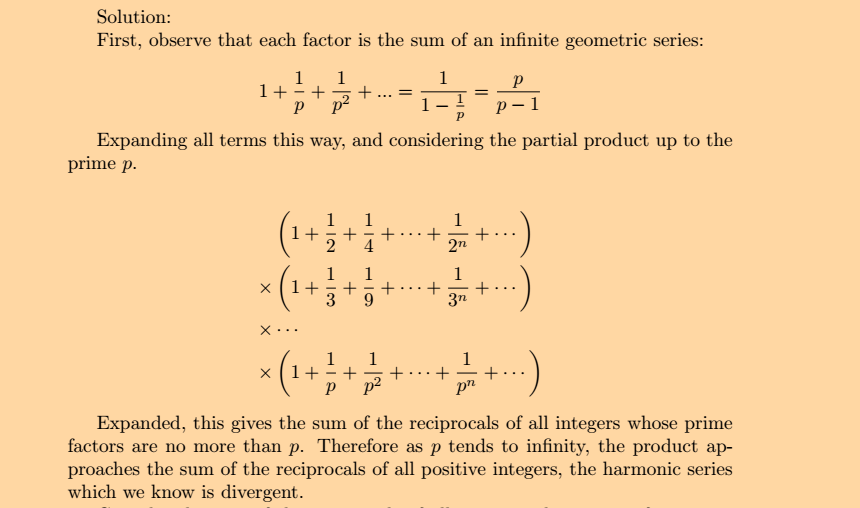I don't know how to begin proving it, but the more I run this series out, bigger it gets. The conditions of the equation are such that it will always have a consistently non-zero rate of increase, even though that rate of increase decreases each time the formula is cycled ((p~n~/p~n~-1) will always be more than (p~n+1~/p~n+1~-1), nonetheless any and every (p~n~/p~n~-1) will be >1). The divergence will be glacial, but definite.
Daily Maths Challenges
Share your cool maths problems.
Complete a challenge:
- Post your solution in comments, if it is exactly the same as OP's solution, let us know.
- Have fun.
Post a challenge:
- Doesn't have to be original, as long as it is not a duplicate.
- Challenges not riddles, if the post is longer than 3 paragraphs, reconsider yourself.
- Optionally include solution in comments, let it be clear this is not a homework help forums.
- Tag [unsolved] if you don't have a solution yet.
- Please include images, if your question includes complex symbols, attach a render of the maths.
Feel free to contribute to a series by DMing the OP, or start your own challenge series.
I can confirm that your intuition for divergence is correct.
I've shown that ln(n/n-1) is always larger than 1/n, so Σln(n/n-1) for all natural number n will be larger than the series 1+1/2+1/3+...
but I don't know how to make sure the sum of all ln(p/p-1) only when p is prime is larger than the provided series
the question is strongly suggesting its divergent, i just dont know how to show it
Perhaps surprisingly, that's actually good enough since the sum of the prime reciprocals also diverges. However, I'm not letting you just assume that, and proving it is harder than the original problem.
Solution

What I like about this solution is that it doubles as a proof that there are infinitely many prime numbers. It's not circular either -- it uses the number theoretic fact that every integer has a prime factorization, but nothing deeper. If only finitely many primes were required for that, ... well then of course every finite product converges.

